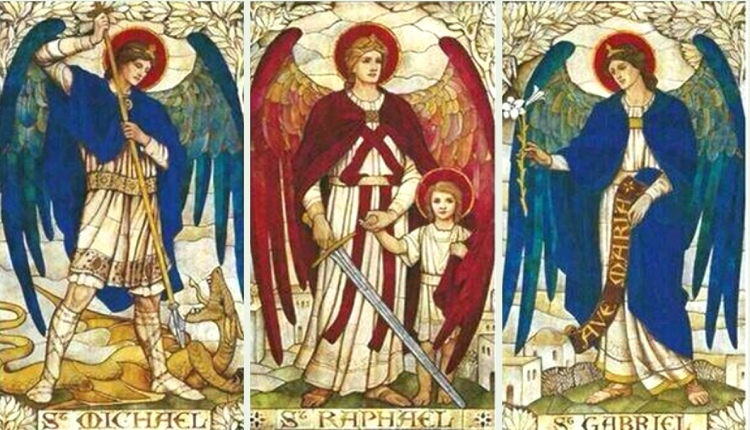 A homily for Magdalen College School
A homily for Magdalen College School
Genesis 28.10-17; John 1.47-51
Olav Hauge: Don’t give me the whole truth
The truth is in short supply and under constant threat. We are indeed a ‘post-truth society’, in which fact is dismissed as opinion and opinion presents itself as fact. The ubiquitous term ‘fake news’ is used not so much to denounce the observably true, as to deepen the suspicion that there is no such thing as truth in the first place. Any piece of film can be successfully disguised to convey a meaning entirely at odds with its original, with astonishing sums of money to be made in the process. As for world leaders, we expect them to lie to us, yet we don’t necessarily decide that this is a negative characteristic, or that it should preclude them from high office. It is quite possible to be a compulsive liar and to be ahead in the opinion polls. In short (and as is often remarked), deceit has circled the globe and done its worst while truth is still getting its shoes on.
It is some consolation to know that we can summon to our aid Saints Michael, Gabriel, Raphael and all the other holy angels celebrated by the Church this week. I dare say that many an intellectual sophisticate will discount angels as flitting phantasms no better than garden gnomes and flower fairies (the feather dusters of the theistic world) but I prefer to see them as glinting forces of deep reality, breaking into our realm of experience to be encountered in the least probable people and circumstances.
And what tellers of truth they are! Michael, the celestial warrior-prince, defeats evil and stamps out its perennially corrosive distortions underfoot. Raphael the healer brings the truthfulness of restored vision in the Biblical Book of Tobit; cures psychological disorder; and continues to oversee the work of wholeness and healing throughout the world. Gabriel (appearing as Jibreel to the Prophet of Islam) dictates the words of God and inaugurates with Scripture the youngest of the Trinity of Abrahamic faiths. In Christian use, he announces to a young Jewish girl not the words of a book but the antithesis of fake news, that she would bear the true and living Word of God, One born to be a light for the nations and the glory of God’s people Israel.
The gospel for Michaelmas, meanwhile, offers a surreal take on the question of truth, sounding like a piece of Pinter or some other purveyor of weirdly-connected thought in disjointed sentences.
- Look! says Jesus. Here’s Nathanael, a truthful Israelite, no fake.
- Glad to have the endorsement, says Nathanael, but why?
- I saw you under the fig tree.
- Rabbi, you’re the Son of God, Israel’s King!
- Because of the fig tree? Stick around, kid. You’ll see more than that.
What Nathanael will see, predicts Jesus, alluding to the ‘Jacob’s ladder’ scene in Genesis 28, is that heaven will open and he himself, the divine Son of Man, will be a ladder to unite earth and heaven, with angels tripping up and down like Royal Engineers, setting up communications and keeping supply-lines open.
For this is just the work of truth told by angels in life’s gaps and fissures as slivers of them slide and slither into momentary view, each one a peripheral vision, an intimation of veracity.
The truth, you see, is too big a pill to swallow whole; too enriching, too enchanting a melody to play in one breath and hear in one performance. It deserves and demands a lifelong listen, as it hides with angels in Hail Marys and crouches low as you read between the calligraphic lines of Muslim verse.
And you cannot gorge on it. You’ll take just what you need for the next stage of the journey. You’ll find it alright, under a fig tree; or in a tear in the sky; a chance remark; even in the nauseating stench of a big fat lie the truth can bask brazen, inoculate, inviolate.
Michael wields it as you battle with your foes; he challenges the lie that longs to bring you low. Raphael bears truth like balm, to dress the wounds of words and dose you against self-doubt. And good Gabriel guides you, tells you the truth you need to hear. For you too are blessed among women and men, will bear images of truth and be yourself an icon of love and reality.
You may know that today is also National Poetry Day (on the theme of the truth), so I will end by reading a short poem which in some sense encapsulates all that I have been trying to express. Indeed, everything that I have said about angels and the truth could be said about the words of poets and the truth. For poetry, too, hides in the cracks of concrete prose and flies out in freedom, ready for uses we cannot predict. Indeed, as the poet Alice Oswald has put it, ‘The whole challenge of poetry is to keep language open, so that what we don’t yet know can pass through it.’
This Michaelmas, then, we might commit ourselves to keeping our eyes and ears more intentionally open, ready to gather up the glances and glimpses of the half-caught and barely-understood: a harvest of angels.
I conclude with a poem of Olav Hauge, the twentieth-century Norwegian poet.
It’s called ‘Don’t give me the whole truth.’
Don’t give me the whole truth,
don’t give me the sea for my thirst,
don’t give me the sky when I ask for light,
but give me a glint, a dewy wisp, a mote
as the birds bear water-drops from their bathing
and the wind a grain of salt.
In Mark Oakley: The Splash of Words (Canterbury Press, Norwich, 2016), pp. 10-14